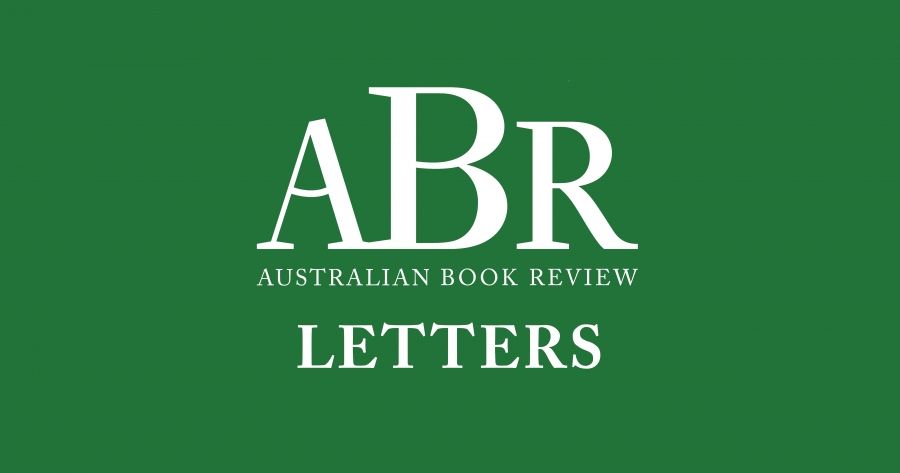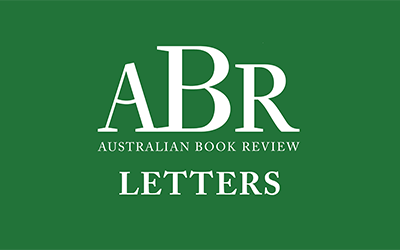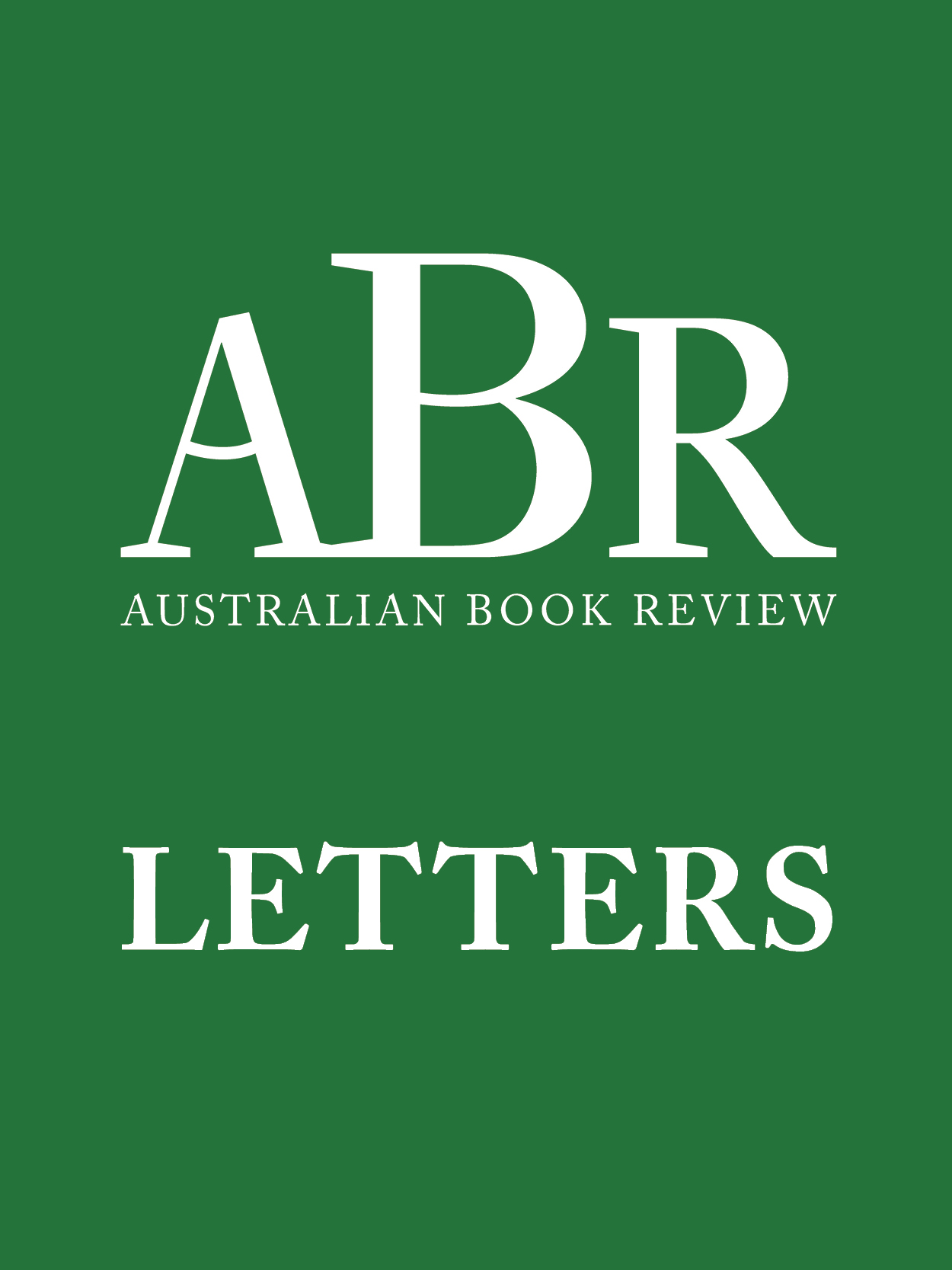
- Free Article: No
- Contents Category: Letters
- Review Article: No
- Article Title: Letters – May 2025
- Online Only: No
- Custom Highlight Text:
The Wakefield Companion
Dear Editor,
Bob Ellis’s disappointment with the new edition of The Wakefield Companion to South Australian History, reviewed by Frank Bongiorno (ABR, April 2025), is naturally disappointing to me as general editor. But in justice to the contributors, Aboriginal and non-Aboriginal, his claim that our work deals largely with ‘European items of interest and Eastern European [sic] artists’ is simply puzzling. This especially when the first eleven articles range from ‘Aboriginal −European Frontier Conflict’ through ‘Aboriginal Histories’ and ‘Aboriginal Land Rights’ (including a whole paragraph on native title) to ‘Aborigines Protection Board’.
- Featured Image (400px * 250px):

- Alt Tag (Featured Image): Letters – May 2025
Asserting that ‘the section on Harold Thomas is thin’, Ellis evidently fails to realise that no living person is the subject of a separate Companion article. But Elizabeth Kwan’s detailed entry on the Aboriginal flag gives its designer more coverage than any other South Australian alive today received.
I do wonder how carefully Ellis has read our book.
Wilfrid Prest
Murky territory
Dear Editor,
I am writing in response to Seumas Spark’s review of my book, Black Convicts: How slavery shaped Australia (ABR, April 2025). While I appreciate the attention given to my work, I am concerned about several misrepresentations that I wish to clarify.
Mr Spark states that the convicts discussed ‘were not chattel slaves’, which is inaccurate. As my book details, the majority of these individuals were born into slavery. Some were convicted during the apprenticeship period, widely considered by historians as an extension of slavery, with full emancipation not occurring until 1838. Moreover, the Mauritian convicts transported, along with many other Black convicts, were enslaved at the time of their conviction. To misrepresent this fact diminishes the horrific experiences these individuals endured.
Mr Spark also suggests that I took a ‘narrow view of the past’, which is a surprising assertion given that the book spans four centuries and five continents, exploring the histories of capitalism, convictism, slavery, race, gender, and Empire. Furthermore, it is incorrect to claim that the book offers ‘little sense of wider context, of a time before the colonial slave trade’. The book begins well before European colonisation, providing a necessary explanation of the long history of slavery, including the etymological origins of the word ‘slave’ on page 4.
Finally, Mr Spark alleges that the book does not ‘embrace murky territory’. However, the book as a whole illustrates the contradictory nature of power, highlighting the involvement of Black convicts in frontier violence, colonial authorities pardoning enslaved men, and the shifts in power dynamics experienced by Black convicts within the convict system.
Given that it now forms an archive, and the increasing threats of misinformation and disinformation, it matters that, editorially, the information printed in reviews is correct.
Santilla Chingaipe
Seumas Spark replies:
I thank Santilla Chingaipe for her comments and take her point with regard to chattel slavery. Her other comments, I suggest, relate to differences in interpretation between writer and reviewer. If these were the aims of her book, they were not clear to this reader. I stand by what I wrote. A difference of opinion is not necessarily a matter of misinformation/disinformation.
The average Joe
Dear Editor,
Not to belabour the repartee between Joel Deane and Patrick Hockey, but I side with the latter regarding voter indifference (ABR, April 2025). How often would the average Joe take a few minutes to email the letters section of one of our major newspapers concerning a political issue or contact their local state or federal member, or a minister or an Opposition bench warmer? Sure, a cohort of voters actively pursues such activities (I’m one of those tragics), but this cohort is miniscule. I agree with Hockey: we are much more likely to couch-sit and groan into oblivion until the cows amble home rather than lift a keyboard finger or an iPhone to convey our discontent.
However, Deane’s observation that our media is ‘dangerously inbred’ is spot on. The year journalism qualifications became tertiary (1978), when a newspaper cadetship was no longer enough, was the year the floodgates began to open, not only to a massive influx of ‘qualified’ graduates into the profession but a conga line of prospectives both tarred with the same brush and moulded by mostly mediocre practitioners who had privileged the then safe halls of academia over the daily grit and grind of the profession. With the vast increase in institutional sites and course accessibility over the past three decades, tertiary journalism study has become a self-serving monolith unto itself. Henry Ford himself would have given the churning homogenous product more than a cursory nod of approval.
Paul Dawson



Comments powered by CComment